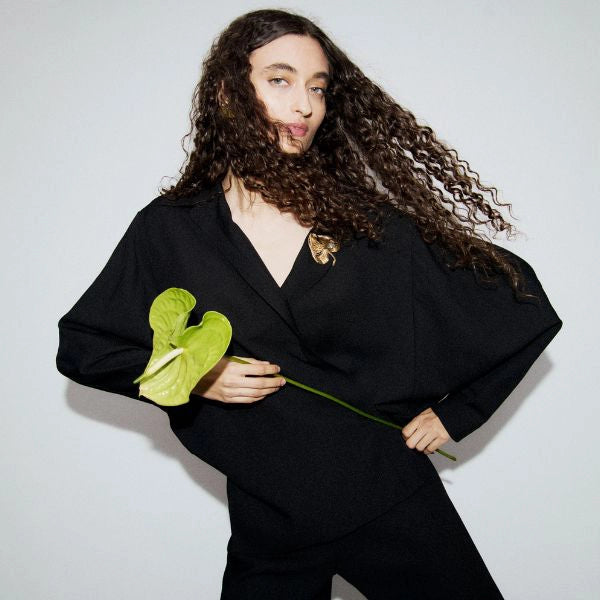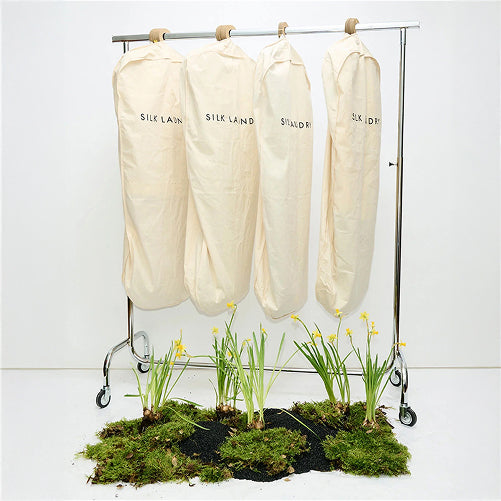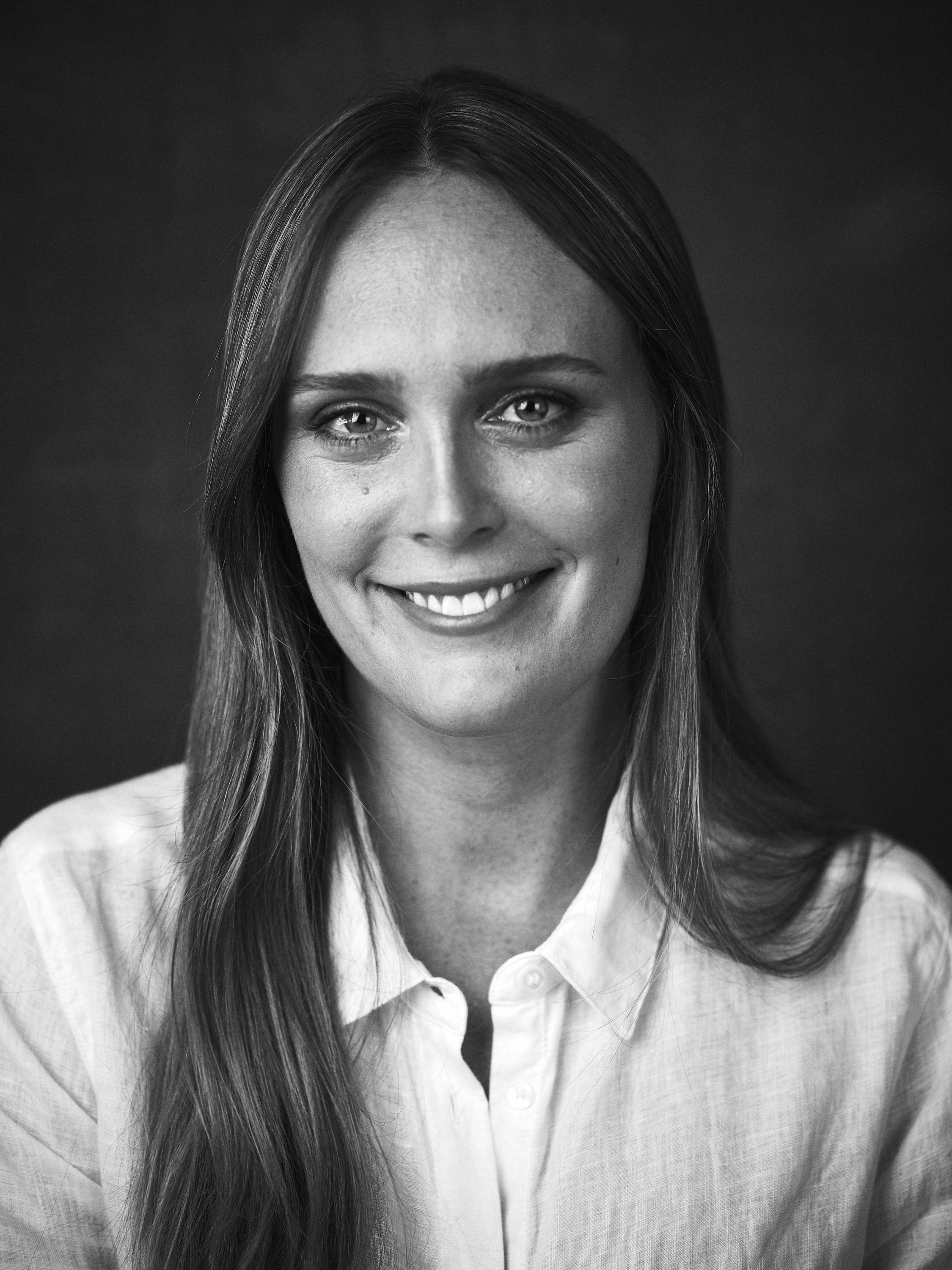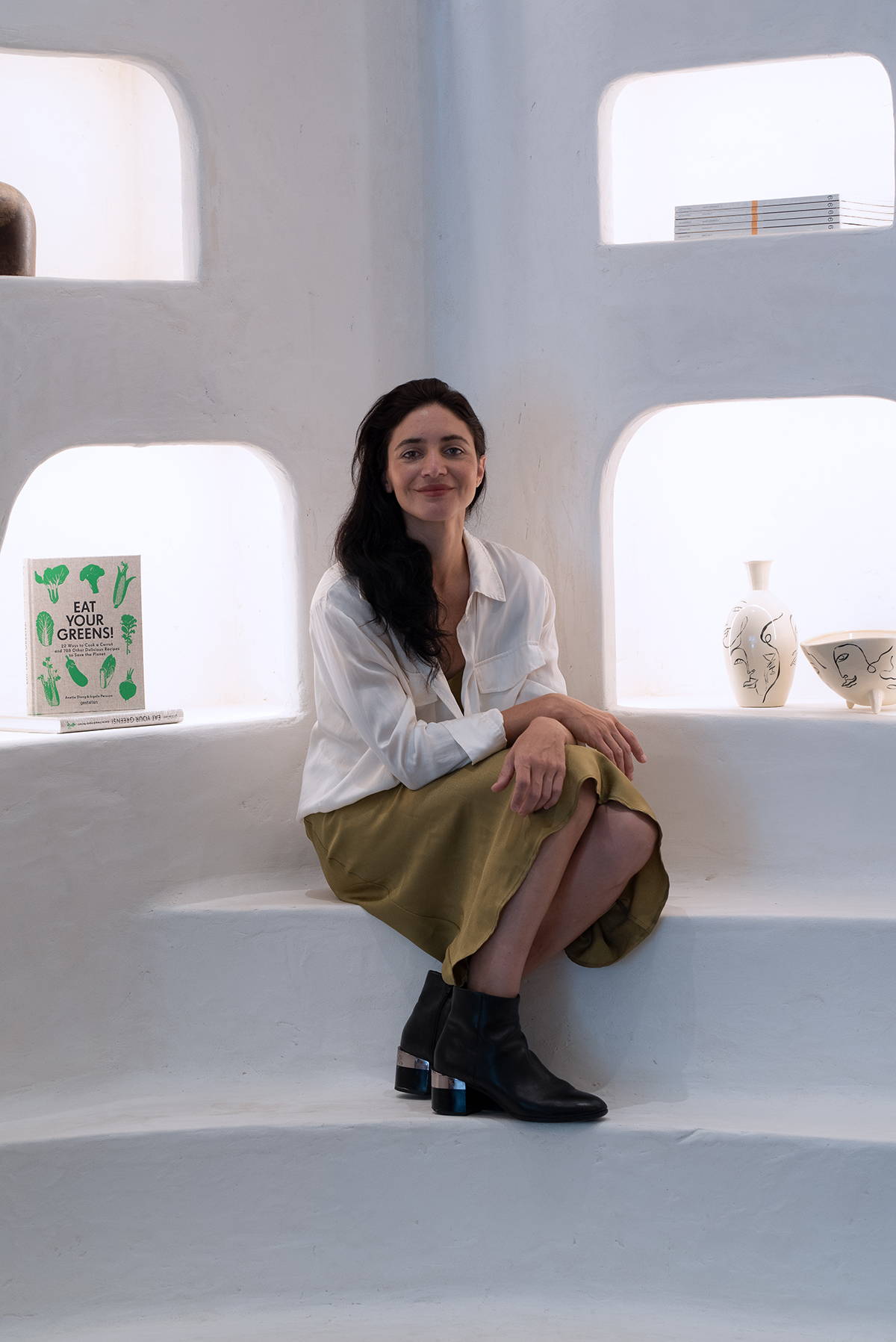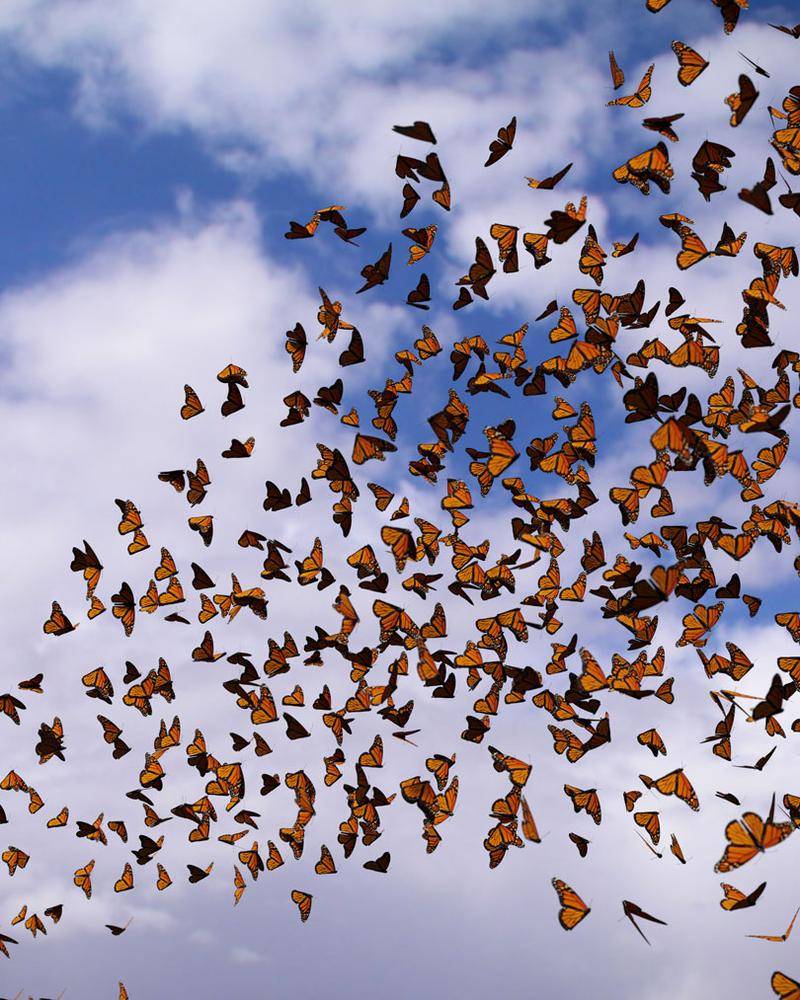SL: So, you live on an island?
CB: I do. I moved to Kangaroo Island, which is off the South Coast of Southern Australia about a year ago. I moved from Europe, where I was living between Germany and Scotland. I married a German man so we came back to Australia and were deciding where we wanted to live and we had actually gotten engaged on this island and there’s lots of wildlife and it’s very beautiful. We thought it’s a bit of a weird thing to do but let’s give it a go, let’s give it a one year trial. Then the place burned down due to the bushfires and COVID followed that so we thought well let’s give it another year to get a better representation. We love it here, though.
SL: How has your year looked for work?
CB: Strange. I do a few things for work. My main work is as a vet which I do overseas but haven’t been able to do. Though the rest of the world seems to be travelling, we’re totally unable to here in Australia. The other big part of my work is taking vet students to animal hospitals around the world and teaching them about wildlife medicine and that hasn’t happened either, that’s all online now. Which is strange, I’m doing a lot of work from home. Although I am seeing lots of upsides to work from home, it’s not something I’ve ever been able to do, I kind of enjoy it - my bottom half at the moment is in pyjamas. The whole situation is strange. I’m lucky enough that I’ve been on Kangaroo Island but things are different for sure.
SL: What was the last animal you worked with?
CB: The last animal I worked with was a koala. That was during the bushfires. I’ve worked with animals since then, I guess, but my last busy time was the koalas that had been caught in the bushfires here in Australia and the treatment of burns. A lot of bandaging and rebandaging. Lots of delicate care and extensive rehabilitations and eventual releases. It was an incredibly rewarding experience but obviously very harrowing and heartbreaking as well. In a way less so, though, because I find the cases where animals have been intentionally harmed by humans - such as in cases of poaching and wildlife crime - really difficult to comprehend. The natural disaster was tough in a different way. That was my last big case. The other day, though, I had a kangaroo with a sore mouth but that probably doesn’t sound too remarkable.
SL: What’s it like being out in the field and working with such amazing animals, many of which the average person never gets the chance to meet? I watched that video of the sedated elephant being lifted upside down onto a truck and it blew my mind.
CB: The stuff you learn just blows me away. Like little things, for example, elephants breathe through their trunks. So after you dart them and they come down you have to get to them quickly and be sure that their trunks aren’t kinked. So you have to find a little twig and put it in their little trunk to make sure it stays open so they can breathe. It’s these little intricacies between species that I just find absolutely fascinating. You do have to have a very good understanding of the animal you’re working with obviously. Some animals, like big cats, are prone to waking up spontaneously under anesthesia. Another cool big cats one is that they’re very attracted to Calvin Klein’s Obsession for Men perfume. So people working with big cats will spray their cages with the scent. I love it. While there are broad similarities, if you know how to treat an elephant you can treat a big cat, there are these little tricks of the trade I like to call them that will help you on your way.
SL: Tell me about the work you do with Fauna & Flora International?
CB: I’m really proud of this role. I’ve been with FFI for nearly a year now. We are the oldest international conservation organization, so that’s something to be proud of in itself. We work essentially to conserve wild spaces, places, and habitats and animals across the world recognizing that you can’t work on saving a species without working to save their habitat. We do that work across forty or so countries by empowering local people to lead the charge of the conservation of their animals. This brings in revenue and sustains them, removing the necessity to hunt or poach or engage in these illegal activities which many people are forced to do out of desperation. I have complete understanding of where they’re coming from in that regard, and that’s what FFI seeks to tackle. We also establish national parks and work with corporations to try and minimize their effect on the environment. What sets us apart is that we also engage with the industries that are capable of causing the most harm such as oil and gas. We have to recognize that collaboration is needed if we’re wanting to have an impact. My primary role with them involves communication; educating the public about what we do and why it’s important and looking for new passionate talented people who might like to champion the conservation message. I have quite a multifaceted role in the organization and I’m so proud to be a part of it. It’s becoming pretty urgent. We’re in the sixth mass extinction, we’re losing species at almost one thousand times the rate before industrialization. What that looks like is increased pandemics, greater vulnerability, we’re losing the plants and animals from which we derive lots of medicines. It’s going to have a huge impact on us.
SL: When you’re introducing people to these harsh realities about the state of our planet’s future, do you find people are easily overwhelmed or disheartened?
CB: As soon as we feel the desperation, we get the “why bother” exhaustion and we’ve all been there. I feel it sometimes myself but that being said I do try to focus on the good news stories like what we’ve achieved and what we’re in the midst of achieving. Holding onto optimism is really important.
SL: How did you choose this professional path for yourself?
CB: I grew up on a little island - a different little island - called Lord Howe Island. Sir David Attenborough himself called it one of the most extraordinary places he’s ever seen. It’s a tropical paradise, barely any cars, barely any people. I grew up with my mother moving around a lot to all kinds of exotic places leading quite an unconventional childhood which at the time I of course resented. But now I’m so grateful, growing up in such places I just decided that I was going to dedicate my life to protecting places like this and keeping wildlife wild. At the time I didn’t know how much of an urgent need there was for that kind of work but I just decided it’s what I wanted to do. So I became a vet and after I finished my schooling I went straight to Africa for the better part of a year and received as much training as I could.
SL: So you’ve written a book?
CB: I did write a book, it’s called The Jungle Doctor. It was a great idea, but it was seriously one of the hardest things I’ve ever done. I hadn’t expected it to be, which is quite naive of me. It took about two years to write. I wanted to share my experience of the natural world and some of the threats its animals are facing, and the work that’s being done to combat that. The intricacies of the natural world and how they work together is just amazing. I just hoped that it might inspire others and champion the cause and that’s why I chose to write it. It’s coming out on the 4th of May here in Australia. I’m very proud of the book. I’ve chosen to give away 100% of the proceeds to a selection of wildlife conservation organizations that mean a lot to me. I think that’s the most exciting part.
SL: You’ve got a large following on social media as well as an amazing blog where you document your work and travels. What’s your relationship to the platforms you use to share your story?
CB: I started my instagram anonymously about six years ago. I wanted to share what I was learning in university and it kind of picked up and the anonymity being removed was sort of scary for a while but then I saw the power in it and the good it can do. It’s astonishing the amount of people you can be able to reach and engage with to share your passions. I see it as a hugely positive thing now. I’m quite a shy person so it can still be daunting sometimes. I feel this really strong pull to spread my message but at the same time am not always comfortable doing so. It’s a bit of an internal battle but one I’m very fortunate and privileged to have.
SL: What do you hope people take away from your message and the work you do?
CB: I hope people take away that they know they can make a difference. I hope that people are inspired to care and that I can impart some of the passion I’ve been fortunate enough to hold onto since childhood. I fell in love with the natural world when I was about ten and somehow retained that love into my adult life. I think it’s easy to lose at some times when the realities of the world hit you. It’s so special what we have and we are custodians for the natural world for the split second we occupy this earth. The decisions we make can change it fundamentally for the next generations and what a huge responsibility that is but also what an amazing opportunity.
SL: I think so many people lose that connection to nature and optimism. You lose the ability to envision an idyllic future as you get older that I don’t think there are enough forms of media or entertainment that we consume that entertain and feed that desire.
CB: Absolutely. And at the same time I hope to counter some of the rubbish you see all over the place like people keeping exotic animals as pets being normalized in the media. Every time someone clicks on the like button for those videos or tv shows that’s fueling wildlife crime. The damage that they’re causing is astronomical. I hope to counter at least some of this damage being done and educate people about why wild animals are not pets. We don’t want to fuel these animals being ripped from their habitats to be brought into homes, circuses, and zoos.
SL: I notice when you talk about crimes like poaching you speak with very little contempt or anger towards these people. I think it’s pretty admirable that you can maintain an understanding that they operate within a larger system that works against them as well.
CB: Absolutely. You need to have empathy for people’s positions. The individual poacher that’s in a desperate situation, I don’t think any of us can understand what it’s like to have to choose between feeding your family. I don’t think you can pass judgement. It’s important to remind yourself of that otherwise you’ll just be consumed with anger which isn’t productive at all.
SL: It seems optimism and empathy are really two guiding principles of yours. How do you find the fashion industry fits into this movement towards change?
CB: I think a lot of good can be achieved through an integration of different industries into the movement of conservationism. I’m so honored and proud of FFI’s collaboration with Silk Laundry. Work like this has a huge potential to do good. I think the fashion industry is very uniquely placed to engage an audience that conservationists such as myself have difficulty reaching. I’ve got a following of animal lovers which is amazing but also can feel like I’m preaching to the converted. Katie and everyone at Silk Laundry offer such an opportunity to share to a larger community who may not be thinking about these issues, and fair enough, there’s so much in the world going on and so just being exposed to this message is such a special opportunity. We’re very excited Silk Laundry has decided to champion this cause, I think it gives an impression of the significant power the fashion industry has in making a change, and already so much good is being done. Yeah I think it’s important to be exposed and reminded, particularly with the influence of social media of who it is we’re actually sharing this planet with. The world extends beyond what we’re exposed to daily.
